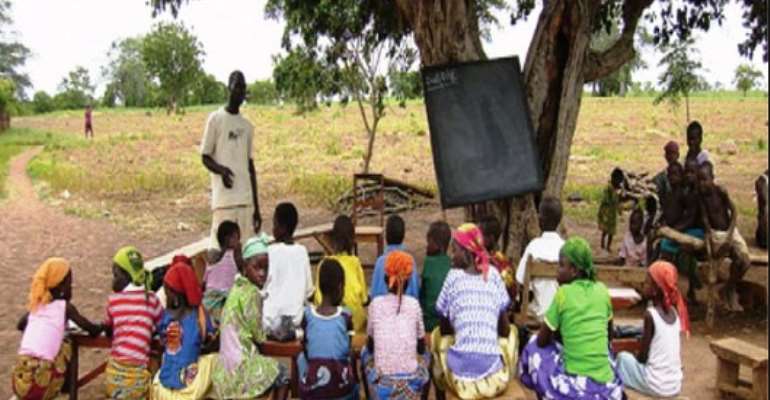our Educational System: A Call For Action.

My eyes literally popped out of my head as I browsed through The Sun on-line news of Tuesday September, 12. The shouting caption here was a shocking revelation from the governor of Kaduna state, Mallam Nasir el-Rufai that up to 50 percent of teachers who were shortlisted for a reappointment for a teaching job into the state civil service failed the primary 4 exams administered to them. As incredible as this may sound, the reality is that the story in Kaduna could be replicated in most if not all the states in the federation. Although tagged among the educationally disadvantaged state, Kaduna is one of the states with the most number of recognized institutions of higher learning in the country, with up to 15 of such institutions domiciled within its demesne. A few of them include the Nigerian Defence Academy, the foremost northern Nigeria’s university-Ahmadu Bello University ABU and the famous Federal Polytechnic, Kaduna among others.
And to think that a state which hosts the National Institute of Teachers, a body which trains, qualifies and certifies teachers should have such a record is to me the most astounding narrative of the solid nay sordid state of the nation’s educational system. It may not be news that our educational sector of the economy is yet to be galvanized from its retrogressive posture but what may be the news is the abysmal depth of such degradation. Take the Kaduna experience for instance; students who were on government scholarship to study medicine in an East African country of Uganda were withdrawn due to poor academic performance. A point to note here, according to the state governor is that those students were considered the best in the state. If they were actually selected based on merit and not nepotism, then something fundamentally is amiss here.
Even though we occasionally hear exploits, few of our students make abroad but the number represents an infinitesimal percentage of the nation’s scholarship. Suffice it to mention a few of such quintessential chaps according to Ventures Africa 2017 reports. They did not only fly the country’s flag abroad but they also finished their studies in flying colours. Mr. Uffot Ekong, for instance graduated with a first class degree in Robotics and Electrical Engineering from Tokai University, Tokyo Japan. He was also reputed to have solved a 30 year old unresolved mathematical equation in his first semester. He eventually earned a Japanese award as the best graduating foreign student. Also Dr. Victor Olalusi was honoured by the Nigerian Ministry of Education as the best medical student in Russia with a GPA of 5.0 for 7 consecutive years. Osarieme Omonuwa, a young female Nigerian student on the other hand became the first female to win the Readings University Chancellor’s Award in the history of a 121 year old institution while Oluwatobi Olusuakanmi became the best first class graduate in Law from University of Cambridge.
As we celebrate these superlative performances, our deteriorating educational infrastructure and dilapidating facilities coupled with frequent interruption in academic calendar owing to strike actions by academic and non-academic unions in the nation’s Ivory Towers is a dent on the nation’s quest for qualitative education.
The continued poor funding due to deficit budgetary allocation by successive administration demonstrates a clear lack of political will to frontally confront the decades of decadence insidiously ravaging our educational system. Even this year’s 6 percent budgetary allocation for education is a far cry from the UN’s recommended 26 percent. It is necessary to know that no nation’s dream of economic development will ever be actualized where a vital sector as education continues to be relegated.
Over-reliance on paper qualification is also a bane on our educational development as so much emphasis is placed on certificate, thus making many to acquire it either by hook or crook. How else would you rationalize a situation where teachers fail a primary 4 exam?
The revelation by the Chairman of Senate Committee on Tertiary Institutions and Tertiary Education Trust Fund, TETfund, Senator Binta Masi in 2016 that Nigerians spend up to $2 billion annually as capital flight on education abroad was both shocking and pathetic. This of course is the corollary of government’s insensitivity and irresponsiveness in addressing citizens’ yearning for qualitative education. What would be the standard of education here if such humongous amount were to be injected into that sector?
The report by Times Higher Education of World Universities’ ranking for 2015/16 placed Nigeria’s best university(University of Ibadan) 601st among the world 800 top universities, coming 200 points below a Ugandan University of Makerere which was 401st in that assessment. There is therefore an urgent need to declare a national emergency on education as this ranking does not befit the status of the giant of Africa.
